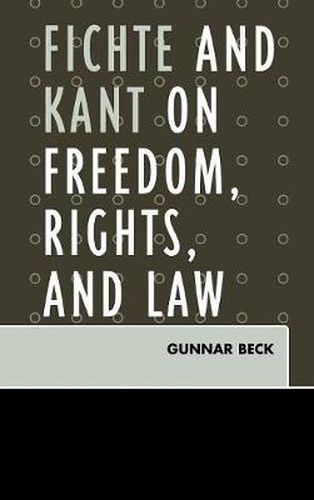Readings Newsletter
Become a Readings Member to make your shopping experience even easier.
Sign in or sign up for free!
You’re not far away from qualifying for FREE standard shipping within Australia
You’ve qualified for FREE standard shipping within Australia
The cart is loading…






Beck provides the first comparative book-length introduction to Kant’s and Fichte’s theories of freedom, law, and politics, together with an overview of the metaphysical and epistemological edifice underpinning their thinking. He provides a critical analysis of the underlying normative foundations of Kant’s and Fichte’s theories of rights as the central theme around which the broader discussion is structured. Going against received interpretation and common scholarly opinion, Beck’s study demonstrates that Kant’s and Fichte’s respective theories of law and of natural rights call into question the analytical link between autonomy and a rights-based political liberalism in crucial respects. Contrary to received scholarship, Beck concludes that Kant’s theory of rights, like Fichte’s, contains an unsettling message for many incompletely reasoned contemporary liberal theories of rights, which rarely discuss those additional ontological, epistemological and psychological foundations on which the defense of liberal individualistic rights ultimately rests.
$9.00 standard shipping within Australia
FREE standard shipping within Australia for orders over $100.00
Express & International shipping calculated at checkout
Beck provides the first comparative book-length introduction to Kant’s and Fichte’s theories of freedom, law, and politics, together with an overview of the metaphysical and epistemological edifice underpinning their thinking. He provides a critical analysis of the underlying normative foundations of Kant’s and Fichte’s theories of rights as the central theme around which the broader discussion is structured. Going against received interpretation and common scholarly opinion, Beck’s study demonstrates that Kant’s and Fichte’s respective theories of law and of natural rights call into question the analytical link between autonomy and a rights-based political liberalism in crucial respects. Contrary to received scholarship, Beck concludes that Kant’s theory of rights, like Fichte’s, contains an unsettling message for many incompletely reasoned contemporary liberal theories of rights, which rarely discuss those additional ontological, epistemological and psychological foundations on which the defense of liberal individualistic rights ultimately rests.